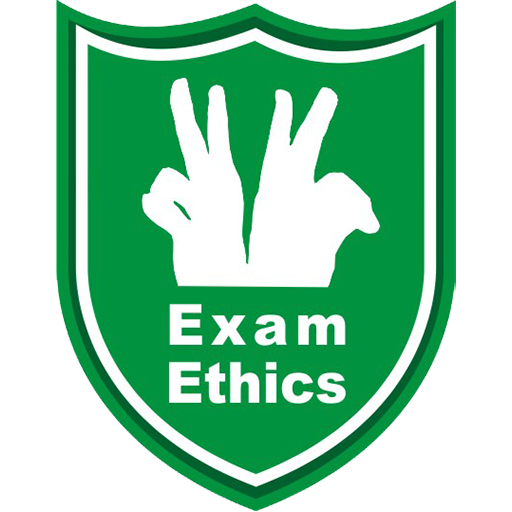Examination Malpractice promotes failure by promoting corruption, incompetence and competitive disadvantage.
Examination malpractice is any act of omission or commission which compromises the validity, reliability and integrity of any examination, assessment, or evaluation system. It makes it impossible to use the result of tests evaluation, assessment, and examination systems to determine the level of skill and competence of candidates. Examination malpractices go beyond fraud in admission, training, and test evaluations in educational institutions. It also includes fraud in assessment and evaluation for employment, promotions, rates, registrations, tenders, licenses, and permits in public and private sector organizations.
The Examination Malpractice Law of Failure states that “Examination Malpractice promotes failure by promoting corruption, incompetence and competitive disadvantage”
Exam Malpractice Law of Failure explained.
The explained for Exam Ethics Law of Success holds true for Exam Malpractice Law of Failure. If your education is based on malpractice, you will invariable exhibit incompetence in your work. This leads to comparative disadvantage relative to other workers in the same field. With this comparative disadvantage which is as a result of exam malpractice induced incompetence, you will not be able to compete effectively. You will be subsequently selected out in the competition for scarce resources and in the race for survival (the theory of survival of the fittest). This phenomenon is summarized by the Exam Malpractice Law of Failure (the exact opposite of the Exam Ethics Law of Success) which holds true for individuals, companies, organization, states, regions and nations.
Exam Malpractice is not in your best interest.
Your “helpers” are only interested in what they gain from you.
Let us emphasize that exam malpractices of all type including malpractice involving practical, forgery, special centres, impersonation, touting, foreign materials, leakages, collusion, and mass cheating are not in your best interest. Any person who offers to “help” you commit malpractice is only helping you to ultimately fail in life. In most cases, those who are, “helping” you are doing it for their ego or for financial benefits or to cover their deficiencies. It does not matter if the person is your parent, teacher, supervisor, or invigilator. Insist on discovering your talent. That is your only route to enduring success.
FIFTEEN (15) SPECIFIC DANGERS OF EXAM MALPRACTICE
- Prevents you from discovering yourself.
- Prevents you from performing well in examinations. Research conducted by Exam Ethics Marshals International in Nigeria shows that increasing incidents of examination malpractice is associated with declining performance of students as measured by credit level passes in senior secondary certificate examinations and admissions and matriculation examinations.
- Prevents you from discover your true talents.
- Deceives you from choosing the wrong profession and vocation for which you have no talents.
- Results in withholding or cancellation of your results by Exam Boards
- Avoid being expelled from school.
- Makes it difficult for you to defend your certificate and pass job interviews.
- Makes it difficult for you to succeed in private enterprise because you do not have the skills, competences and capabilities claimed in your certificate.
- Leads to embarrassment in future endeavours, careers and politics on account of certificates acquired through cheating, fraud, malpractices or forgery.
- Propagates the culture of fraud and corruption in your school, thereby negating the idea of the institution as a place for transmission of moral and ethical values. The institution is therefore turned into a factory for breeding potential fraudsters.
- Breeds and fuels culture of corruption in society as youths are fed and weaned on diets of fraud and dishonesty through examination malpractice.
- Allows incompetent, mediocre and ethics-unfriendly people to ascend into positions of powers and authority with attendant negative consequences for society.
- Promotes the habit of laziness.
- Can land you in jail.
- Prevents you from achieving your destiny.







